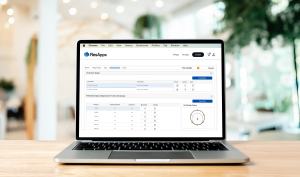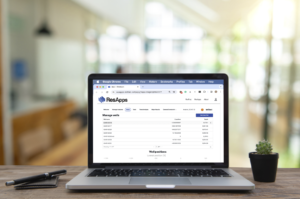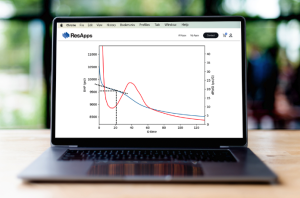ResApps
Tools to facilitate key engineering and geoscience workflows
StageOpt
Predict the effect of perforation design on fluid and proppant transport from the wellbore.
IntTest
Apply the CPG and DQI procedures to assess fracture conductivity and degree of production impact.
FracTest
[Coming Soon] Accurately estimate stress, permeability, and pore pressure from DFITs.
Technical capabilities
- Cutting-edge best practices
- Answer critical engineering questions
- Transparent, clear documentation
User-interface features
- Web-based platform
- Streamlined, easy-to-use
- Save, import, and export your work
More about the apps

StageOpt

IntTest
Analyze interference tests to estimate fracture conductivity and the degree of production interference.

FracTest
Use modern best-practices to interpret Diagnostic Fracture Injection Tests to estimate stress, permeability, and pore pressure.
Get up to speed quickly with help content built directly into the app
Technical documentation and training materials
Download our Technical Write-up
Take a Training Course
FAQ’s
Applications
ResApps are a suite of tools designed to facilitate key engineering and geoscience workflows.
Yes, you can! ResApps are licensed separately from the ResFrac simulator.
No, the apps are entirely web-based.
Submitted data are stored in an encrypted database hosted on Microsoft Azure. Data are keyed by user, so users are only able to access their own data. All data transmissions are handled using industry-standard encrypted protocols.
Licenses are annual subscriptions for individual-users. For more information on ResApps site login and app signup, see the tutorial here.
Please contact us at [email protected]
Recent content from the ResFrac blog

Horizontal hydraulic fractures in ResFrac
Horizontal hydraulic fracture propagation is believed to be widespread in shale plays where the frac gradient approaches the overburden – such as the Vaca Muerta, Utica, and Montney. However, horizontal propagation is nearly always ignored in hydraulic fracture modeling. In ResFrac, we are obsessed with ‘getting the physics right’, and so naturally, we extended our simulator to handle horizontal fracturing. The first version of this new capability was released earlier this year. We are eager to start collecting feedback from users, which will help us to fine tune the algorithm and workflow.

Advanced ‘proppant transport in the well’ capabilities are now implemented in ResFrac!
Proppant transport in the well is an intriguing topic that has attracted a lot of interest in recent years [1-8]. Proppant transport processes determine the uniformity of proppant placement, which has a direct impact on productivity. Cipolla et al. estimate that the difference between poor and excellent proppant uniformity is about $2.5M in net present value per well.

Digesting the Bonkers, Incredible, Off-the-Charts, Spectacular Results from the Fervo and FORGE Enhanced Geothermal Projects
I’m out of superlatives – I used them all up in the title. But seriously – Enhanced Geothermal System (EGS) projects have had a really, really good summer. In this article, I summarize the results that have been recently presented by Fervo and FORGE. At their annual Tech Day and in a white paper posted this week (Norbeck et al., 2024), Fervo Energy provided their first update on Project Cape, a Utah project where they are developing 400 MWe of new production over the next two years. So far, fourteen wells have been drilled, and three of them have been stimulated.